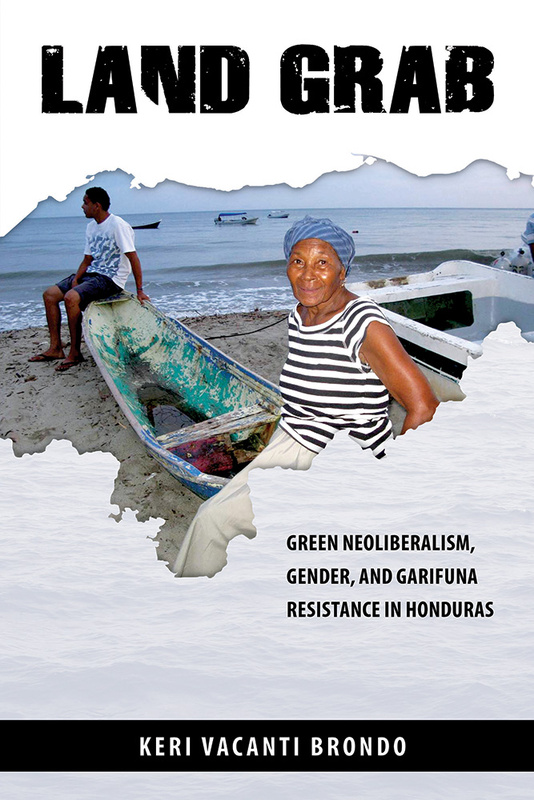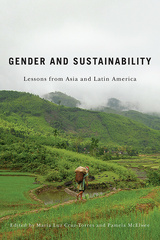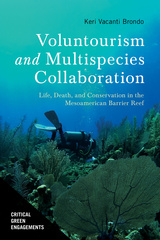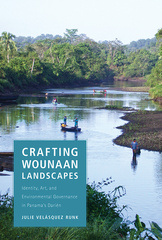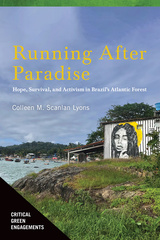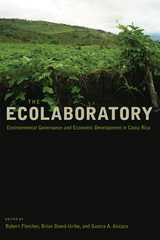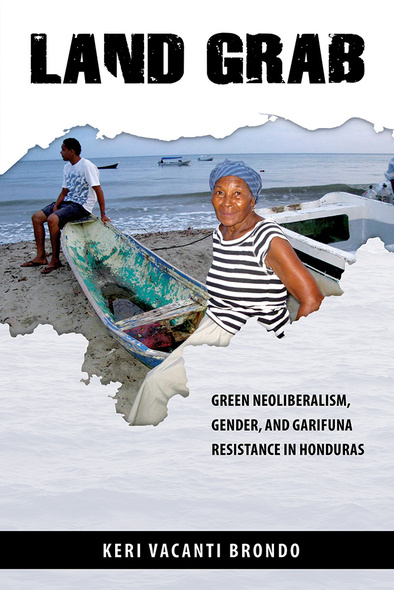
248 pages, 6 x 9
5 tables, 16 photos, 2 maps
Paperback
Release Date:05 Jan 2017
ISBN:9780816535569
Land Grab
Green Neoliberalism, Gender, and Garifuna Resistance in Honduras
The University of Arizona Press
Land Grab is a rich ethnographic account of the relationship between identity politics, neoliberal development policy, and rights to resource management in Garifuna communities on the north coast of Honduras, before and after the 2009 coup d’état. The Garifuna are a people of African and Amerindian descent who were exiled to Honduras from the British colony of St. Vincent in 1797 and have long suffered from racial and cultural marginalization.
Employing approaches from feminist political ecology, critical race studies, and ethnic studies,Keri Vacanti Brondo illuminates three contemporary development paradoxes in Honduras: the recognition of the rights of indigenous people at the same time as Garifuna are being displaced in the name of development; the privileging of foreign research tourists in projects that promote ecotourism but result in restricting Garifuna from traditional livelihoods; and the contradictions in Garifuna land-rights claims based on native status when mestizos are reserving rights to resources as natives themselves.
Employing approaches from feminist political ecology, critical race studies, and ethnic studies,Keri Vacanti Brondo illuminates three contemporary development paradoxes in Honduras: the recognition of the rights of indigenous people at the same time as Garifuna are being displaced in the name of development; the privileging of foreign research tourists in projects that promote ecotourism but result in restricting Garifuna from traditional livelihoods; and the contradictions in Garifuna land-rights claims based on native status when mestizos are reserving rights to resources as natives themselves.
Brondo’s book asks a larger question: can “freedom,” understood as well-being, be achieved under the structures of neoliberalism? Grounding this question in the context of Garifuna relationships to territorial control and self-determination, the author explores the “reregulation” of Garifuna land; “neoliberal conservation” strategies like ecotourism, research tourism, and “voluntourism;” the significant issue of who controls access to property and natural resources; and the rights of women, who have been harshly impacted by “development.” In her conclusion, Brondo points to hopeful signs in the emergence of transnational indigenous, environmental, and feminist organizations.
A grounded, compassionate, incisive critique of the environmental and cultural effects of neoliberal policies on Afro-indigenous, resource-dependent populations of the Central American Caribbean coast.’—American Anthropologist
‘Brondo’s discussion of the Garifuna’s ongoing identity formation in relation to land rights on regional, national, and international stages is fascinating.’—Latin American Politics
‘Crucially, the text interweaves political, economic, critical race and ethnic studies, and gender analysis to provide a complex account of the impact of neoliberalism on Garifuna communities.’—Mark Anderson, author of Black and Indigenous: Garifuna Activism and Consumer Culture in Honduras
‘An excellent analysis of Garifuna resistance to neoliberalism in Honduras with particular respect to land rights under tourism development and conservation strategies.’—Helen Safa, author of The Myth of the Male Breadwinner: Women and Industrialization in the Caribbean
Keri Vacanti Brondo is an assistant professor of anthropology at the University of Memphis. She has spent the last decade researching and writing about Garifuna land rights, women’s activism, and conservation policies in Honduras.
Acknowledgments
Introduction: Death and a (Land?) Motive
1. Identity, Labor, and the Banana Economy
2. Development and Territorialization on the North Coast
3. Mestizo Irregularities, Garifuna Displacement, and the Emergence of a “Mixed” Garifuna Community
4. Gendered Rights and Responsibilities: Privatization and Women’s Land Loss in Sambo Creek
5. Representing the Garifuna: Development, Territory, Indigeneity, and Gendered Activism
6. Roots, Rights, and Belonging in Sambo Creek
7. “Businessmen Disguised as Environmentalists”: Neoliberal Conservation in Garifuna Territory
8. Research Voluntourism as Rights-Based Conservation: Could It Work?
9. Neoliberalism’s Limit Points in Post-Coup Honduras
Conclusion: Counterpunches to “Honduras Is Open for Business”
Notes
Bibliograph
Index

